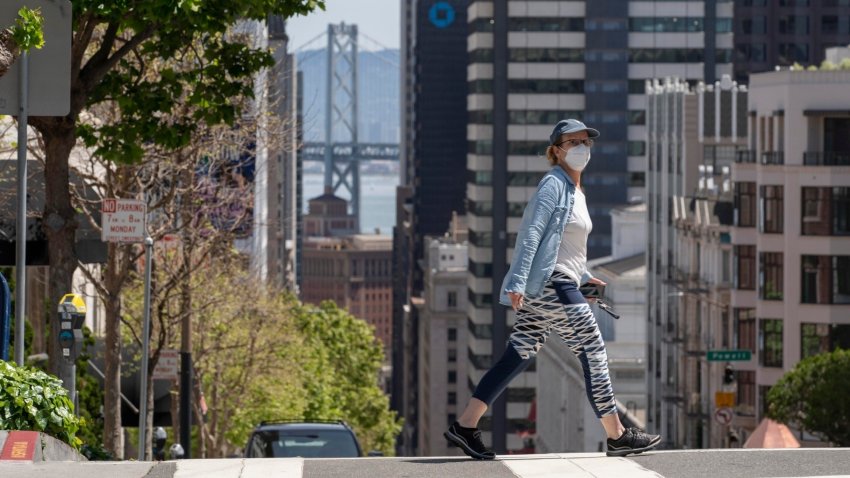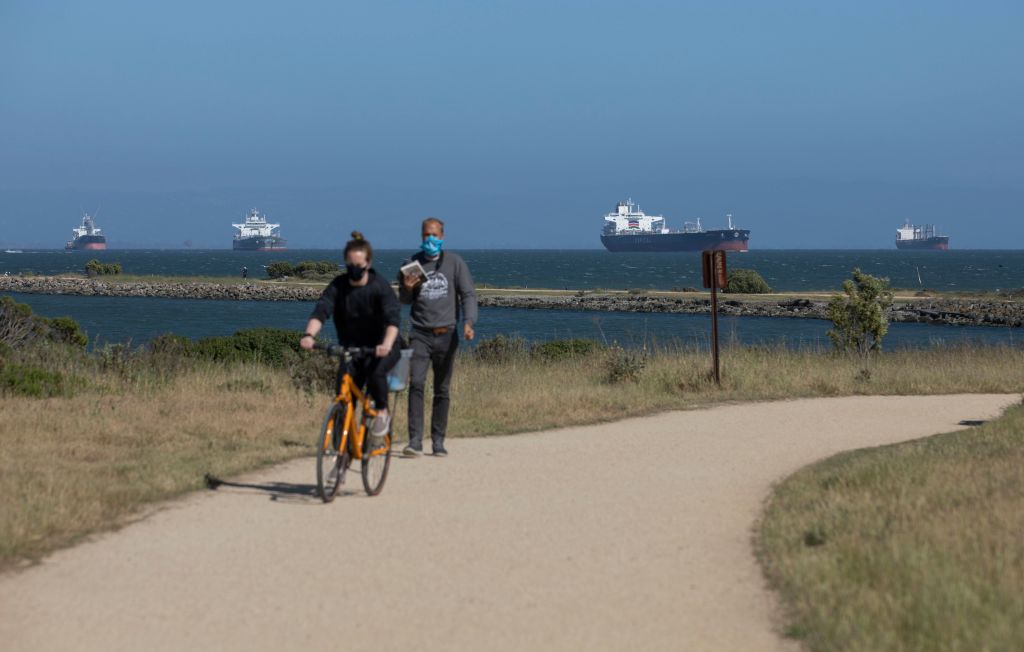EDITOR'S NOTE: This story is no longer being updated. Click here for the latest on the extension of the stay-at-home order.
Public health officials in several Bay Area counties and cities on Wednesday announced that the coronavirus stay-at-home order will be extended through May, with limited easing of certain restrictions.
The revised order will allow all construction activities, certain businesses that operate primarily outdoors, and some outdoor activities to resume with specific conditions, public health officials announced Wednesday.
The extended, revised order takes effect Monday and runs through May 31. Until then, the current order remains in place, officials said.
A joint statement sent Monday morning by the counties of Alameda, Contra Costa, Marin, San Francisco, San Mateo and Santa Clara along with the city of Berkeley said the order initially issued last month has helped in slowing the spread of the virus and preventing local hospitals from being overwhelmed.
"Thanks to the collective effort and sacrifice of the 7 million residents across our jurisdictions, we have made substantial progress in slowing the spread of the novel coronavirus, ensuring our local hospitals are not overwhelmed with COVID-19 cases, and saving lives," the statement read. "At this stage of the pandemic, however, it is critical that our collective efforts continue so that we do not lose the progress we have achieved together. Hospitalizations have leveled, but more work is needed to safely re-open our communities. Prematurely lifting restrictions could easily lead to a large surge in cases."

The health officers from the several Bay Area jurisdictions this week will also release a set of indicators that will be used to track progress in COVID-19 preparedness and response.
More information about the order extension, and what restrictions may be eased, will be shared later in the week, the joint statement said.
"This global pandemic of COVID-19 is still in its early stages," the statement read. "The virus spreads easily, testing capacity is limited and expanding slowly, and vaccine development is just beginning. We expect to be responding to COVID-19 in our communities for a long time. As effective as our efforts have been, if we move too fast to ease restrictions, the potential of exponential spread could have grave impacts to health and wellness of our residents as well as the economy."



